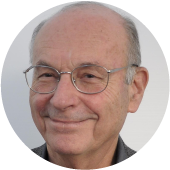Boris CYRULNIK

Transcription
the title is very stimulating, because you couldn't die if you weren't alive before. So the two are associated and what is also associated is life and suffering. Could we live without suffering?
I propose to distinguish between pain and suffering. Pain, it contains, it is supported by pain pathways, that is to say it is anatomy, physiology, synaptic transmission and we share that with many mammals and a large part of the living world, since it is even said that plants suffer and it is even said that the soil can also suffer, but I believe that we must distinguish "pain", which is a neurological base, and "suffering", which is particularly developed when we have corticalization, that is to say when we can develop a nervous system that allows us to submit to pressure from others, from relationships and from the environment.
I think we can make this distinction, because "suffering" comes from "sulfero", "endure", I tolerate pain more or less well. The same pain information can be more or less well tolerated according to our development and our relationships, that is to say according to corticalization. So that's just for the introduction, what I'm going to try to talk about.
Pain is inevitable, it is even necessary. I had the opportunity to see a case of C-fiber agenesis, where the woman had no pain and one day while cooking she smelled grilled steak. The oven door had opened, it was her leg that was grilling and she had absolutely no idea.
This means that pain is an adaptive mechanism that allows us to avoid adapting to the environment, to flee, to adapt or to confront, just like most living beings. [....]



